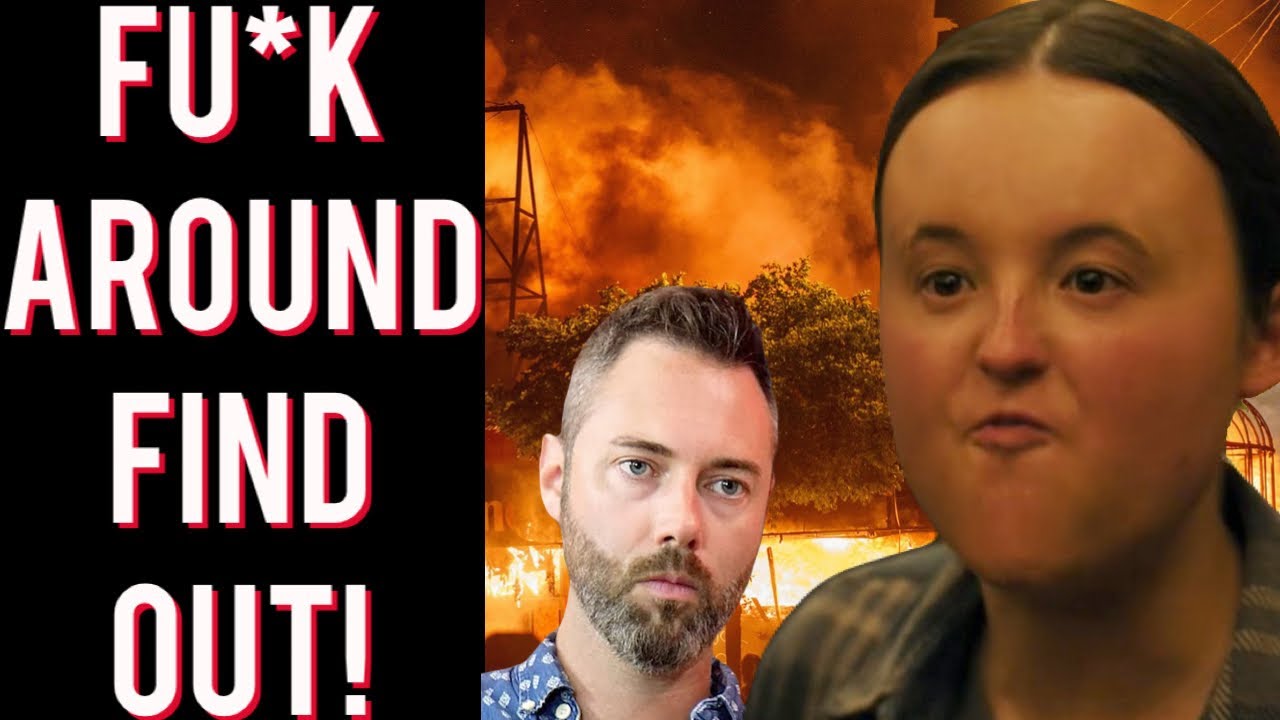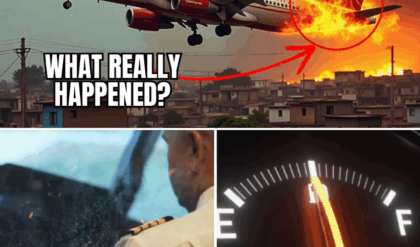Last of Us Season 2 Creators Restore Critical Drinker Video Amid Backlash
The second season of HBO’s The Last of Us, a critically acclaimed adaptation of the Naughty Dog video game, has been no stranger to controversy since its April 13, 2025, premiere. However, a recent clash between the show’s creators and YouTube critic The Critical Drinker has ignited a firestorm, with reports claiming that HBO initially struck down Drinker’s video “Why The Last of Us Is Falling Apart” for copyright infringement, only to restore it after a viral backlash from fans. The incident, amplified by posts on X and YouTube, has raised questions about free speech, corporate overreach, and the polarizing reception of The Last of Us Season 2. What led to this dramatic showdown, and why did the creators back down?

The Critical Drinker’s Video and the Strike
The Critical Drinker, a popular YouTube commentator known for his sharp critiques of film and television, released a video titled “Why The Last of Us Is Falling Apart” on May 5, 2025, analyzing the perceived decline of The Last of Us Season 2. The video, which garnered significant attention before its removal, pointed to falling viewership, a collapsing Rotten Tomatoes user score, and controversial creative choices as evidence of the show’s struggles. Drinker criticized the adaptation’s divergence from The Last of Us Part II game, particularly its handling of key characters like Joel (Pedro Pascal) and Ellie (Bella Ramsey), and accused the show of prioritizing “identity politics” over storytelling, a sentiment echoed in earlier reviews of his like “The Last Of Us – Well, They Really Did It” on April 21, 2025.
On May 6, 2025, the video was taken down from YouTube following a copyright strike from Warner Bros. Discovery, HBO’s parent company. Reports from YouTube channels like YellowFlash and Geeks + Gamers claimed that HBO targeted Drinker’s video for using brief clips from The Last of Us Season 2, despite such usage typically falling under fair use for criticism. Drinker responded on X, calling out HBO for “shamelessly abusing the YouTube copyright system” and accusing them of being “afraid of actual criticism.” His post, shared widely, sparked outrage among fans, with users like @LordBlizzard and @DavidHarvey_SC decrying HBO’s actions as an attack on free expression.
The Viral Backlash
The backlash was swift and intense. By May 7, 2025, posts on X and Reddit’s r/CriticalDrinker community, including one by @YellowFlashGuy, rallied behind Drinker, framing HBO’s strike as an attempt to silence dissent amid Season 2’s divisive reception. A YouTube video by YellowFlash titled “SILENCED! Last of Us season 2 creators ATTACK Critical Drinker over criticism!” garnered significant views, alleging that HBO was “scared” of the show’s declining ratings. On Reddit, users like u/CompletelyIncorrect0 expressed frustration, with comments like “HBO – now it’s personal,” linking the strike to broader discontent with the show’s direction.
The controversy tapped into existing fan grievances. Season 2, which adapts The Last of Us Part II, faced backlash for its handling of Joel’s death in episode two, mirroring the game’s polarizing 2020 moment where Abby (Kaitlyn Dever) kills him. While critics praised the episode, scoring it 9.4/10 on IMDb, user reviews on Rotten Tomatoes and Metacritic plummeted, with scores as low as 0/10 decrying the show’s “woke” politics, Ellie’s portrayal, and Bella Ramsey’s casting. Winteriscoming.net noted that the backlash, while loud, was milder than the game’s, but HBO’s strike against Drinker reignited tensions, with fans accusing the network of stifling criticism to protect a faltering season.
HBO’s Reversal
Faced with mounting pressure, HBO reportedly restored Drinker’s video on May 7, 2025, as announced in a YellowFlash video titled “Last of Us season 2 creators BACK DOWN! Restore Critical Drinker video after viral BACKLASH!” The decision followed what Fandompulse.substack.com described as a “viral firestorm,” with fans and influencers like @Rev_says_desu and @damien_thrash celebrating the reversal as a victory for free speech. While HBO has not issued a public statement, sources suggest the network reconsidered the strike to avoid further alienating viewers, especially as Season 2’s viewership reportedly dipped from 5.3 million for the premiere to lower numbers in subsequent episodes, per Variety.
The restoration was seen as a rare capitulation. Geeks + Gamers noted that YouTube’s copyright system, which allows instant demonetization or removal based on claims, often favors corporations, making HBO’s backdown significant. Drinker’s video, now reinstated, has continued to gain traction, with fans on X praising his critique for articulating their frustrations with the show’s pacing, character arcs, and perceived political messaging.
The Last of Us Season 2: A Polarized Reception
The Last of Us Season 2, co-created by Craig Mazin and Neil Druckmann, has been a critical darling, earning a 95% on Rotten Tomatoes and an 81/100 on Metacritic based on 42 reviews. Critics lauded its action sequences, direction, and performances, particularly Pascal’s “career-best” Joel, Ramsey’s traumatized Ellie, and Isabela Merced’s compassionate Dina. Empire called it “post-apocalyptic television at its peak,” and Collider dubbed it “one of 2025’s best seasons.” However, user scores tell a different story, with Rotten Tomatoes’ audience rating dropping due to complaints about the show’s fidelity to the game and its emphasis on Ellie’s lesbian relationship with Dina, which some labeled “virtue signaling.”
The season’s premiere drew 5.3 million viewers, a 13% increase from Season 1, but subsequent episodes reportedly saw declines, though exact figures are unconfirmed. The casting of Kaitlyn Dever as Abby, a less muscular version of the game’s character, sparked debate, with Mazin and Druckmann defending the choice as a creative necessity, per Variety. Bella Ramsey, who is nonbinary, faced renewed harassment over their appearance and identity, with Reddit threads and X posts fixating on Cailee Spaeny as a “better” Ellie, echoing Season 1’s backlash. The Indian Express called the controversy “baffling,” noting Ramsey’s Emmy-nominated performance.
The Role of Social Media and Fair Use
The Drinker incident highlights the power of social media in shaping public discourse. X posts from users like @Wyndstr0m and @RTarpley framed HBO’s initial strike as “cowardly,” while Fandompulse.substack.com argued it violated fair use, which protects criticism using copyrighted material. The YouTube copyright system, criticized for its bias toward claimants, allowed HBO to remove Drinker’s video instantly, but the backlash—fueled by 70 upvotes on Reddit and thousands of X shares—forced a reversal. Fandompulse cited U.S. copyright law, stating that fair use covers commentary and criticism, suggesting HBO’s strike was a misuse of power.
The controversy mirrors past disputes, such as Naughty Dog’s strikes against The Last of Us Part II critics in 2020, as noted by YellowFlash. Fans on Reddit’s r/TheLastOfUs2 recalled similar tactics, with one user stating, “We made a big stink about this 5 years ago and nobody listened.” The Drinker case, however, gained traction due to his large following—over 2 million subscribers—and the season’s existing divisiveness.
Implications for HBO and The Last of Us
HBO’s decision to restore the video may mitigate some damage, but it risks reinforcing perceptions of corporate fragility. Winteriscoming.net noted that Season 2’s backlash, while less intense than the game’s, has been amplified by incidents like this, with fans decrying the show’s politics and pacing. The network’s silence on the Drinker controversy, coupled with declining viewership, could pressure Mazin and Druckmann to address fan concerns, though their Variety interview suggested confidence in their creative vision.
For The Last of Us, the incident underscores the challenge of adapting a polarizing game. The show’s success—8 Emmys for Season 1, 24 nominations—sets a high bar, but user backlash on platforms like Metacritic, where 0/10 scores cite “woke propaganda,” highlights a disconnect with some fans. Collider praised the season’s action but noted pacing issues, a criticism Drinker echoed. HBO may need to balance artistic fidelity with fan expectations to maintain momentum for a potential Season 3.
Zegler’s Tangential Connection
While Rachel Zegler is not directly involved, her recent Hollywood struggles provide context for the industry’s volatile climate. Her Snow White flop, Evita ticket sale woes, and reported She Gets It From Me production halt due to alleged chaos mirror the external pressures facing The Last of Us cast, like Bella Ramsey, who endured similar online vitriol. The Drinker controversy, like Zegler’s, shows how social media can amplify criticism, turning creative decisions into cultural battlegrounds.
Looking Ahead
The restoration of Drinker’s video is a win for critics, but it may not quell Season 2’s broader backlash. HBO’s retreat suggests vulnerability, and with viewership reportedly faltering, the network faces pressure to stabilize the show’s reception. For Drinker, the incident boosts his platform, with Reddit users praising his “nailing” of HBO’s missteps. The Last of Us Season 2, despite critical acclaim, must navigate fan discontent to secure its legacy, with the Drinker saga a cautionary tale of corporate overreach in the social media age.
Conclusion
HBO’s initial strike against The Critical Drinker’s “Why The Last of Us Is Falling Apart” video, followed by its restoration amid viral backlash, has thrust The Last of Us Season 2 into a new controversy. The incident, fueled by X posts and YouTube videos, highlights tensions over fair use, free speech, and the show’s divisive reception. While creators Mazin and Druckmann retain critical support, fan backlash over creative choices and Ramsey’s casting mirrors the game’s 2020 uproar. As The Last of Us battles declining ratings and online vitriol, the Drinker showdown underscores the power of fans to hold studios accountable—and the risks of silencing critics in a digital era.





